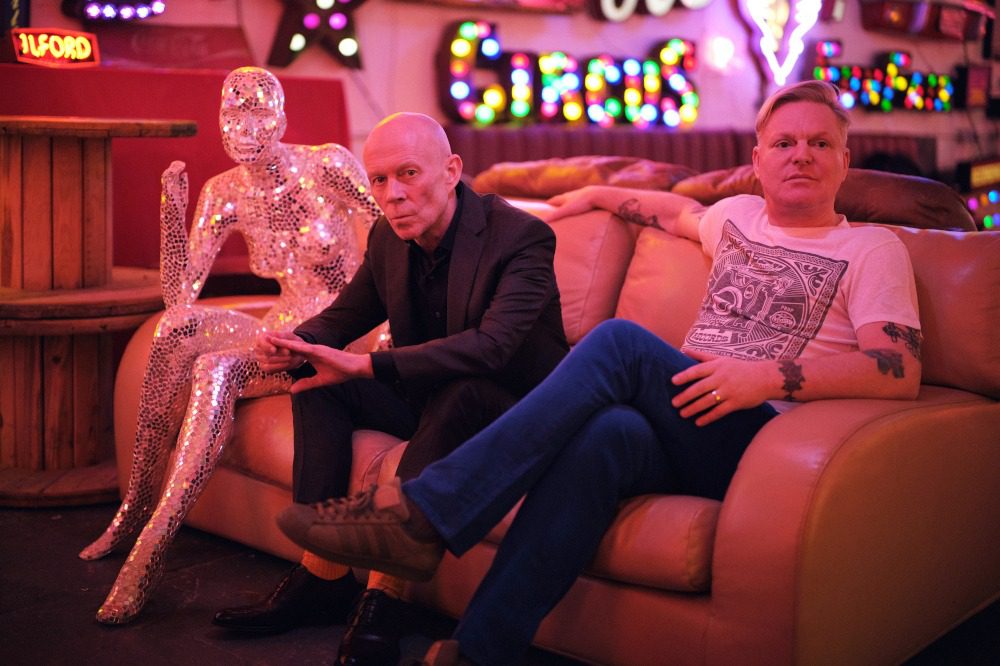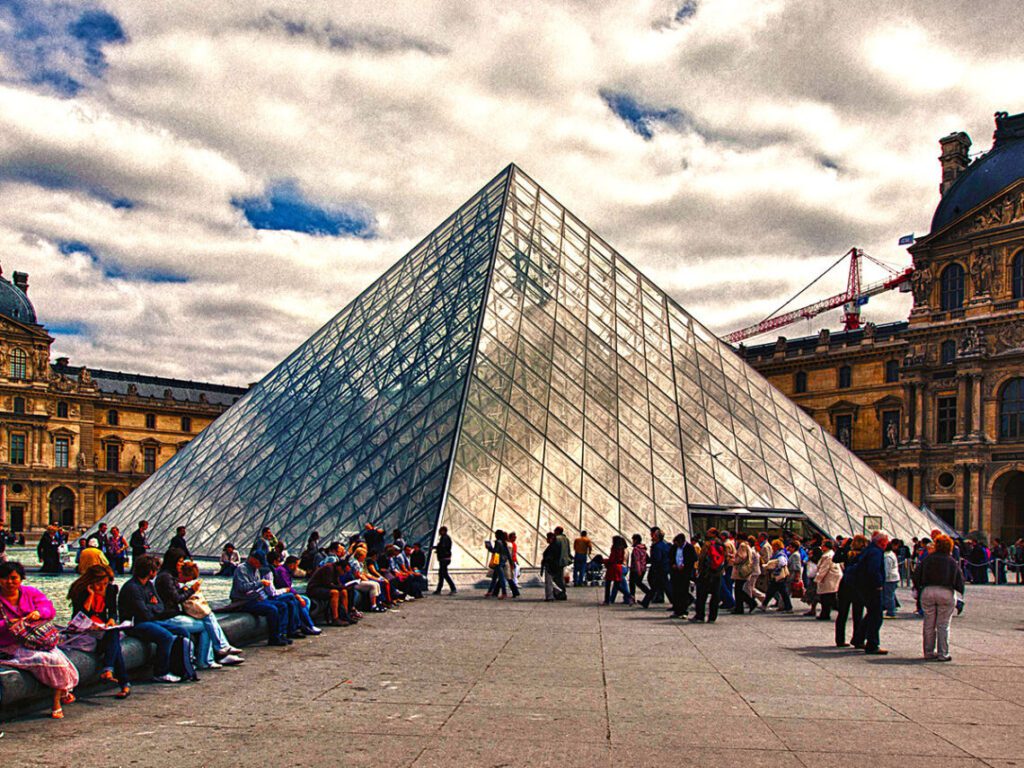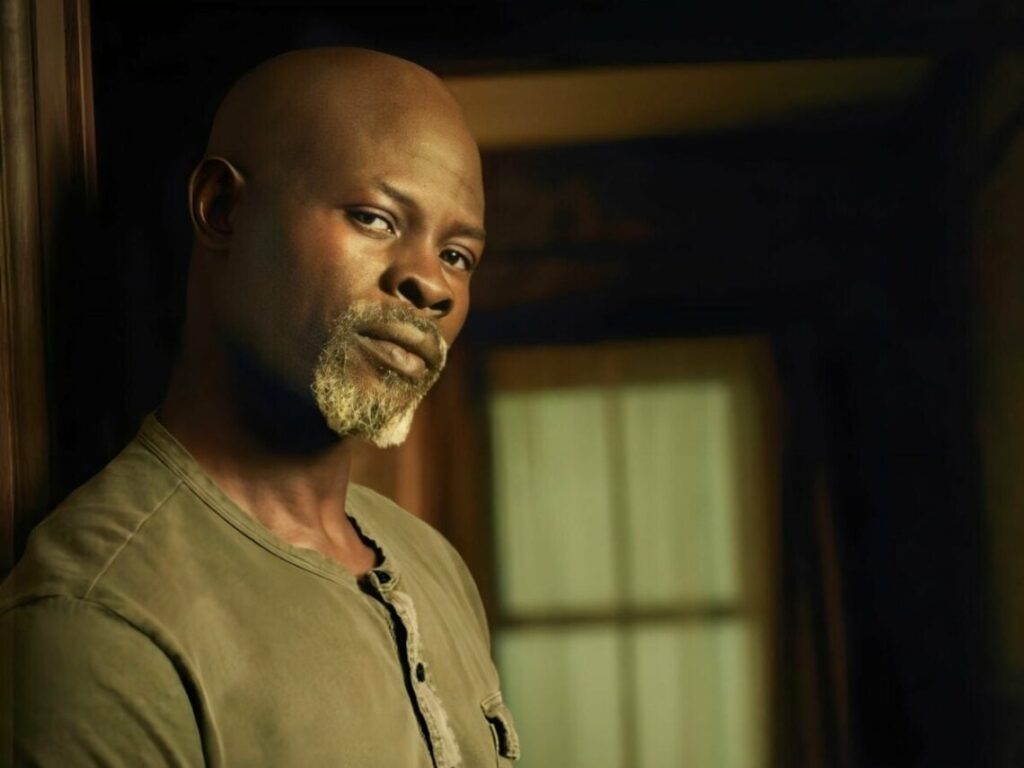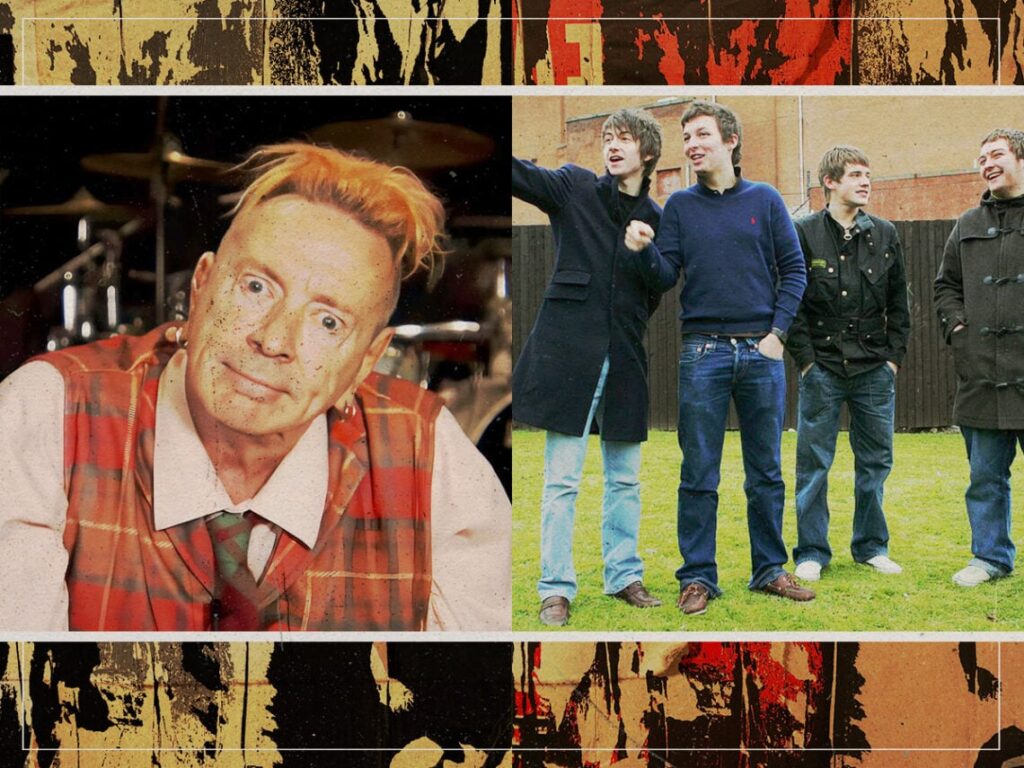Erasure on New LP 'The Neon', Why They're Not Planning Virtual Concerts
 Posted On
Posted On
Despite the uncertainty of the pandemic, Erasure’s Andy Bell and Vince Clarke are calm and assured ahead of their 18th LP. Even if fans can’t mash to “Hey Now (Think I’ve Got a Feeling”) or fist pump to “No Point in Tripping” at one of the duo’s flamboyant concerts, the band have no qualms about The Neon falling on deaf ears.
Erasure started work on the album after wrapping their World Be Gone tour in 2018. Clarke, already spending every day at his home studios in Brooklyn or Maine, quickly pulled together music for Bell to begin writing lyrics. Jumping from song to song in what Bell describes as “auto-writing,” they wound up with “whatever [came] out” — an approach exemplified on the abstract “Diamond Lies.”
They shifted locations multiple times, from Clarke’s base in New York to Bell’s homes in Miami, Atlanta and London, ultimately recording The Neon in Atlanta’s Maze Studios — a nice change for Clarke, who is used to working in basements. They ended up at God’s Own Junkyard, a London warehouse housing the largest collection of vintage neon signs in Europe. Here, they captured visuals that reflect the album’s ethos of celebration and reflection.
Bell and Clarke have been separated since the start of the pandemic, in London and Brooklyn, respectively. From these remote locations, where they will host their virtual album release party on Aug. 21, the two speak to SPIN about launching a new LP amid a cultural landscape they’ve never experienced.
SPIN: After 35 years of releasing albums, what’s it like releasing one during a pandemic?
Vince Clarke: The album was finished and ready to go before this all kicked off. Initially, the record company put it back a little bit but then decided that, even though we couldn’t promote it by touring, people would still appreciate hearing a new Erasure record. Apart from touring, it’s not been that different for us.
Andy Bell: Being on an independent label has worked out to our advantage. Because we’re so outside of the mainstream, these kinds of unusual times work for us. When you offer yourself up for TV shows — which are almost non-existent — we’re halfway down the list or at the bottom of the list. But because you can only appear by Zoom or Skype, it seems fairer.
With Erasure having such a solid following, you don’t necessarily need to tour to bring attention to a new album.
AB: I can’t imagine not playing live. That’s my favorite thing. We’ve taken our freedom for granted for so long, and you take it for granted that you’re going to do a tour off the back of an album. Something like this reminds you just of how lucky you are to have an engaged audience.
You’re at a level where you could sell tickets to a virtual concert and do quite well. Have you considered doing that?
VC: There are no plans to do anything like that. We’re in different countries. Our backing singers and crew are all over the world. We’ve recorded a couple of things, but they’re not concerts by any means. A whole concert like that, that would be quite boring. One artist going through an hour and half of songs on a TV screen — I don’t think that would be very interesting for the fans.
AB: I can’t imagine playing to a non-existent audience. They might be there at the other end watching us, but that to me seems too not real.
That’s understandable, especially with the degree of showmanship and theater of an Erasure performance.
AB: In the beginning, I was all guns blazing. I wanted to be as out as out could be, especially when we were on stage. There was no question about my sexuality whatsoever. After a while, you start thinking, “What’s the big deal?” There are so many people younger than you giving great energy. You just want to come into your own character and just be — and I don’t use this word often, sophisticated. You want to become like a statesperson within your performance.
That’s an elusive place to arrive in any artist’s life, in any medium.
AB: Songwriting is a tricky thing. But this time, for the first time in a long time, I really felt like it clicked instantly. Being an artist and growing up and having confidence in yourself, it doesn’t matter if you don’t get played. It doesn’t matter if you’re not embraced by the music industry. It’s always the latest sensation. That’s just how it is. For a while, I was quite envious and jealous of that. One of my worst traits was jealousy, and I hate that. That feeling is so embarrassing, and it’s so apparent on your face. You can’t hide it. But then you just grow up.
There have been many positive changes toward the LGBTQIA community. At the same time, shows like Pose are tracing the trajectory of what the community has experienced, particularly with AIDS. What’s your take on that?
AB: I’ve been living with AIDS since 1998. It’s really amazing the things we’ve been through. We did so many things in our past, like me and [Bronski Beat’s] Jimmy Somerville protesting on the steps of Euston Station. I would be walking around New York and come upon an Act Up demonstration, feeling scared and exhilarated at the same time. You forget, but there’s footage and photos of all of it. Creatively, it’s been amazing having people like RuPaul and RuPaul’s Drag Race becoming mainstream. At the same time, there is no utopia. We’ve made tremendous strides, but there are always going to be opposing forces.
Vince, as an original member of Depeche Mode, you’re a Rock and Roll Hall of Fame inductee this year. Does that mean anything to you?
VC: Not really. I’m glad for the Depeche Mode boys. They really deserve it and worked really hard to get there. I don’t like the name. I don’t think Erasure is a rock and roll band. If there were a Pop Hall of Fame, I would be very happy to be in there.



